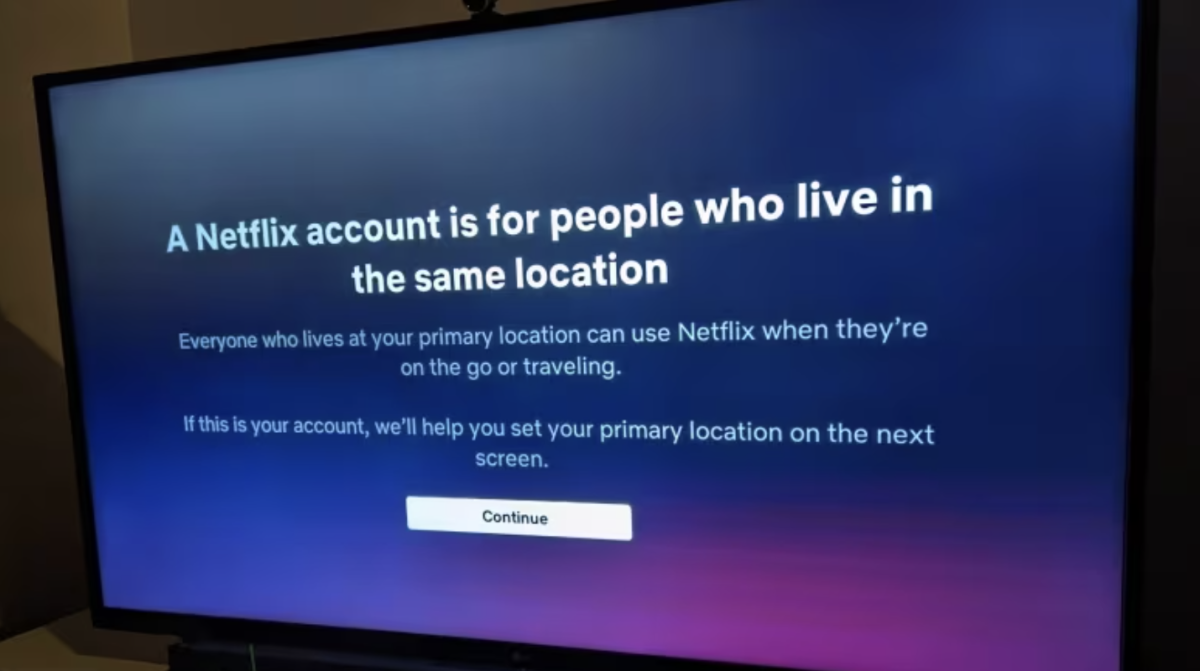After finally figuring out how to connect a TV to the school’s Wi-Fi, having one in your dorm can be a fun touch. This opens up a world of opportunities, from movie nights to watch parties, you’ll never have to crowd around your friend’s computer again.
My friends and I love a good watch party. There’s nothing like being together and feeling all the emotions your favorite show brings. But recently, we’ve run into a few issues.
As we excitedly turned on Netflix to watch one of our favorite Netflix Original series, Young Royals, we were met with a screen that read “This TV isn’t a part of your Netflix household,” and given the option to update the household, say we were traveling, or create an entirely new account.
Netflix wasn’t wrong, the TV was not technically part of the “Netflix household,” but why should that prevent a college student from watching TV in their dorm?
This new rule was announced in February of 2023 in an attempt to prevent users from sharing their account with friends or family members, something people have done for years. Netflix is not cheap, so sharing an account with others could help cut down the cost.
Despite this policy being announced over a year ago, it was not until recently I had run into this issue.
Netflix still works on my computer, iPad, and even my phone, but as soon as my friends and I try to put something on the TV, frantic calls to parents are made to get an access code to use the “traveling” option.
Is it the end of the world if a few people share a Netflix account? The answer, to me, is no. It seems like Netflix is doing everything possible to get the most money possible from its users.
College students are already paying thousands of dollars to get an education. For college students at Simmons, we pay for public transportation, groceries, and the occasional meal that isn’t from Bartol, among other things. Adding a monthly subscription on top of all of that just to relax with a movie can be a lot.
Account sharing used to be the solution to this. Whether it be sharing an account with your friends or using your parent’s account for as long as possible, it can be a real money saver.
The cheapest Netflix plan is priced at $6.99 per month. Despite Netflix, for a long time, being known for its ad-free streaming, this plan is ad-supported. The ad-free plan is more than twice the cost at a whopping $15.49 per month, which is a big jump from the streaming service’s original price of $7.99 per month without ads.
While $15.49 per month may seem not too bad to some, it adds up. To have the ad-free plan for a year would be around $185, and that only allows you to watch Netflix on two devices at once. I don’t know about you, but I don’t have an extra $185 lying around. If I split that cost with a few friends, or just use my parents’ account (thank you Mom and Dad), the price is a bit more affordable.
Netflix implementing this new feature is ridiculous and seems like a way for an already multi-billion dollar company to make even more money. A lot of us college students are on a tight budget, and being able to share an account with a few friends or family members can be helpful.
One can only hope Netflix considers college students in the future.










